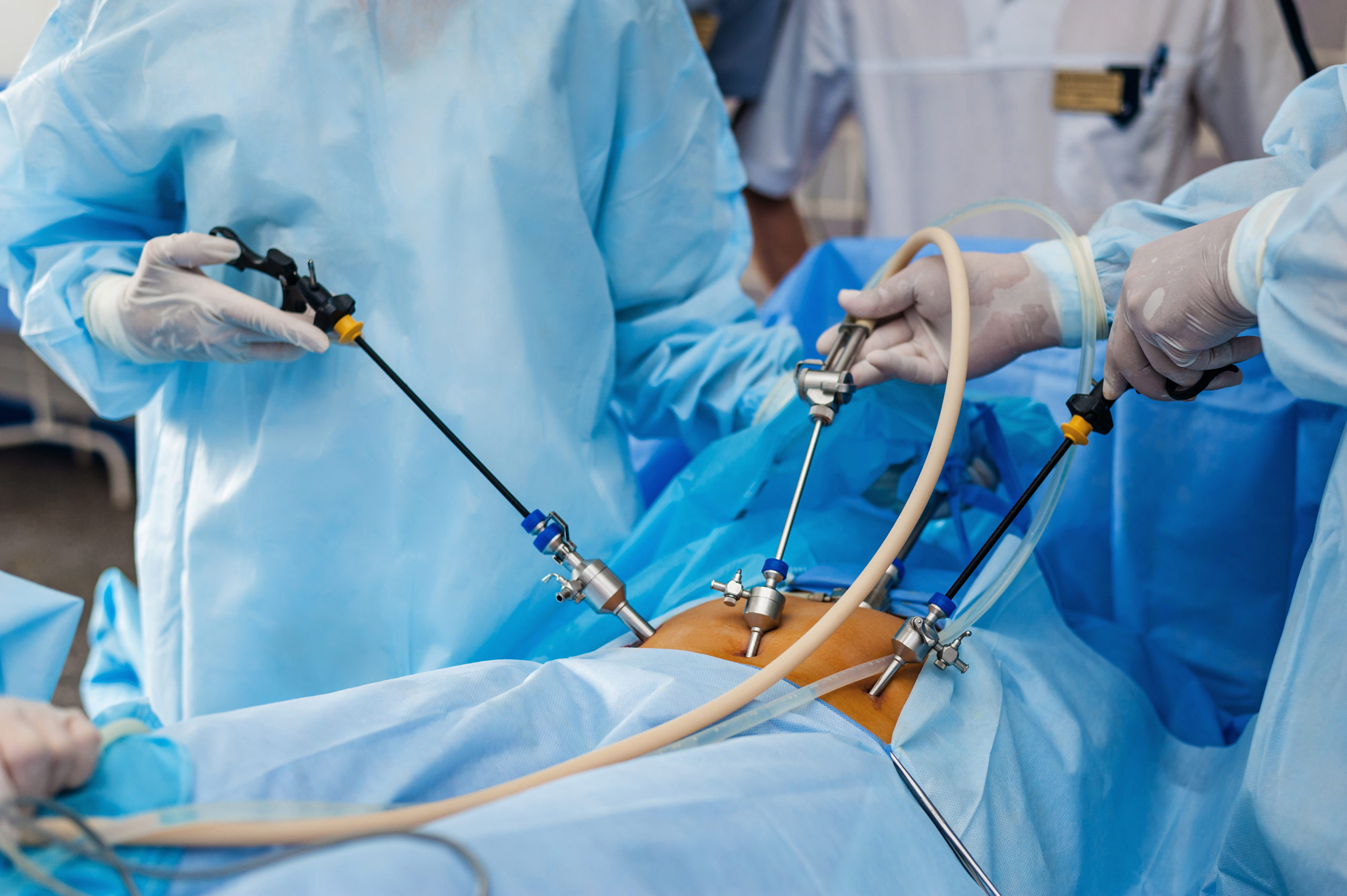Minimally invasive surgery for colorectal cancer and benign colorectal disease
Unlike open surgery that requires a long incision to open the abdomen, minimally invasive surgery involves several small incisions (cuts) – often shorter than an inch. Also known as laparoscopic surgery or laparoscopy, surgeons perform minimally invasive procedures using several long instruments and a long, thin camera that clearly shows the inside of the abdomen.
With smaller incisions, laparoscopic surgery offers patients a shorter recovery time, less pain, and, hopefully, a quicker return to normal life.
Ideal Candidates for Laparoscopic & Robotic Colorectal Surgery
Both laparoscopic & robotic colorectal surgeries are appropriate for patients with any form of colorectal disease. Candidates have realistic expectations and no post-surgery healing issues. Patients in the early stage of their colorectal disease are the best candidates for colorectal surgery.
Your Consultation
A physical examination will be conducted during your consultation to determine the exact colorectal disease you are experiencing. The specialist will also evaluate your medical history. Once the actual colorectal disease has been precisely identified and the target areas assessed, the specialist will recommend the most suitable surgical plan.
The specialist will discuss the entire surgical plan with you. You will learn about the preparatory steps, the actual surgery, the recovery process, and the results. The cost of the procedure will also be discussed. By the end of your consultation, you will have a schedule for your colorectal surgery.
Laparoscopic colorectal surgery
Laparoscopic surgery involves using small incisions where surgeons insert long instruments through the abdominal wall to complete the procedure. Surgeons perform the surgery with a laparoscope, a long, thin camera that produces a picture on a screen above the operating room table. This device allows the surgeon to operate while looking at a monitor with an enlarged, clear image of the abdomen.
Robotic colorectal surgery
Robotic surgery is very similar to laparoscopic surgery. The surgeon begins the procedure by creating small incisions in the patient’s abdomen and then uses a camera and long instruments to complete the surgery. The “robot” is next to the patient, and its mechanical arms hold the camera and instruments. The surgeon sits at a high-resolution, 3-D video console and uses hand controls to manipulate the robot arms to perform the surgery. Surgeons find robotic surgery a valuable tool for complex procedures.
Recovery
The patient will be released after their condition has stabilized. Due to the nature of the surgical procedure, the patient will experience a shorter recovery time with less pain compared to other more invasive colorectal surgeries. Recovery instructions will be provided, along with prescription medications to aid the recovery process.
A post-surgery appointment will be scheduled to assess the recovery process and the results of the surgery. The specialist will also inform the patient when certain physical activities will be allowed depending on the results of the consultation.
The Cost
The price of colorectal surgery will depend on the chosen surgical procedure. The number of surgical areas will also affect the total cost of the surgery. Health insurance covers the cost of these procedures.
Schedule Your Consultation
If you want to learn more about laparoscopic & robotic surgery for colorectal diseases in Raleigh, visit us at UNC REX – Colorectal. Contact us today to schedule your consultation.
Related Procedures & Surgeries
Inflammatory Bowel Disease (IBD) Surgery


